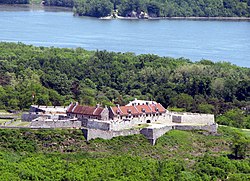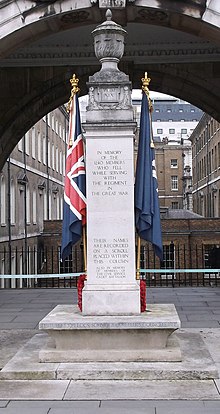Portal:History
The History Portal
History is the systematic study of the past, focusing primarily on the human past. As an academic discipline, it analyzes and interprets evidence to construct narratives about what happened and explain why it happened. Some theorists categorize history as a social science, while others see it as part of the humanities or consider it a hybrid discipline. Similar debates surround the purpose of history—for example, whether its main aim is theoretical, to uncover the truth, or practical, to learn lessons from the past. In a more general sense, the term history refers not to an academic field but to the past itself, times in the past, or to individual texts about the past.
Historical research relies on primary and secondary sources to reconstruct past events and validate interpretations. Source criticism is used to evaluate these sources, assessing their authenticity, content, and reliability. Historians integrate the perspectives of several individual sources to develop a coherent narrative. Different schools of thought, such as positivism, the Annales school, Marxism, and postmodernism, have distinct methodological approaches.
History is a broad discipline encompassing many branches. Some focus on specific time periods, such as ancient history, while others concentrate on particular geographic regions, such as the history of Africa. Thematic categorizations include political history, military history, social history, and economic history. Branches associated with specific research methods and sources include quantitative history, comparative history, and oral history.
History emerged as a field of inquiry in antiquity to replace myth-infused narratives, with influential early traditions originating in Greece, China, and later in the Islamic world. Historical writing evolved throughout the ages and became increasingly professional, particularly during the 19th century, when a rigorous methodology and various academic institutions were established. History is related to many fields, including historiography, philosophy, education, and politics. (Full article...)
Featured picture
Did you know (auto generated)

- ... that the 1892 Biddle vs. Livingstone football game was the first college football game ever played between historically black schools?
- ... that a 2001 book shares the history of a small Tudor community through a 54-year-long "running commentary" by "a somewhat unamiable busybody"?
- ... that the entire inventory of historic string instruments in Canada's Musical Instrument Bank are loaned to musicians in a competition held every three years?
- ... that Narita Viliamu Tahega has won 38 medals in international weightlifting competitions, the most in the history of Niue athletics?
- ... that the Los Angeles Sparks have the most wins and highest winning percentage in WNBA history?
- ... that the first Russian feature film, Stenka Razin, depicts the historical Cossack leader throwing a princess into the Volga?
Paul Palaiologos Tagaris (Greek: Παῦλος Παλαιολόγος Τάγαρις, c. 1320/1340 – after 1394) was a Byzantine Greek monk and impostor. A scion of the Tagaris family, Paul also claimed a somewhat dubious connection with the Palaiologos dynasty that ruled the Byzantine Empire at the time. He fled his marriage as a teenager and became a monk, but soon his fraudulent practices embroiled him in scandal. Fleeing Constantinople, he traveled widely, from Palestine to Persia and Georgia and eventually, via Ukraine and Hungary to Italy, Latin Greece, Cyprus and France.
During his long and tumultuous career, Paul was appointed an Orthodox bishop, sold ordinations to ecclesiastical offices, pretended to be the Orthodox Patriarch of Jerusalem, switched from Greek Orthodoxy to Roman Catholicism and back again, supported both the See of Rome and the Avignon anti-popes in the Western Schism, and managed to be named Latin Patriarch of Constantinople. In the end, his deceptions unmasked, he returned to Constantinople, where he repented and confessed his sins before a synod in 1394. (Full article...)
On this day
April 1: April Fools' Day; Iranian Islamic Republic Day (1979)
- 1871 – The Duke of Buckingham (pictured) opened the first section of the Brill Tramway, a short railway line to transport goods between his lands and the national rail network.
- 1952 – Israel enacted a citizenship law, prior to which the country technically had no citizens.
- 1969 – The Hawker Siddeley Harrier, the first operational fighter aircraft with V/STOL capabilities, entered service with the Royal Air Force.
- 2001 – Same-sex marriage in the Netherlands was legalized, making it the first country to do so.
- Aimery of Cyprus (d. 1205)
- Sophie Germain (b. 1776)
- Shivakumara Swami (b. 1907)
- Scott Joplin (d. 1917)
Selected quote
Genius is one percent inspiration, ninety-nine percent perspiration.
— Thomas Edison, scientist and inventor
Related portals
More Did you know...
- ... that the underground Fortress of Mimoyecques (pictured) was built by Nazi Germany to bombard London with 10 shells a minute using the V-3 supergun?
- ... that Howard P. Perry was the first African American recruit in the United States Marine Corps?
- ... that the Chester city walls form the most complete circuit of Roman and medieval defensive town walls in Britain?
- ... that China's first female director was adopted by the first Premier of the People's Republic of China?
- ... that the Medieval Merchant's House in Southampton was being used as a brothel when bomb damage during the Blitz revealed the building's important medieval architecture?
- ... that the Sumerian "river of paradise", the Hubur, derived partly from real geography before becoming a demonic fantasy?
- ... that Bill Foley's photograph "The Last Smile" shows Anwar Sadat only moments before his assassination?
- ... that the 1911 Sarez earthquake triggered a huge landslide, forming the tallest dam in the world?
Topics
Categories

History • By period • By region • By topic • By ethnic group • Historiography • Archaeology • Books • Maps • Images • Magazines • Organizations • Fictional • Museums • Pseudohistory • Stubs • Timelines • Chronology • People • Wikipedia historians
WikiProjects
![]() WikiProject History •
Ancient Near East • Australian History • Classical Greece and Rome • Dacia • Former countries • History of Canada • Chinese history • European history • Heraldry and vexillology • Indian history • Jewish history • Medieval Scotland • Mesoamerica • Military history • Middle Ages • History of Science
WikiProject History •
Ancient Near East • Australian History • Classical Greece and Rome • Dacia • Former countries • History of Canada • Chinese history • European history • Heraldry and vexillology • Indian history • Jewish history • Medieval Scotland • Mesoamerica • Military history • Middle Ages • History of Science
WikiProject Time • Days of the Year • Years
WikiProject Biography • Composers • Political figures • Saints • United States Presidents
Things you can do
 |
Here are some tasks awaiting attention:
|
Associated Wikimedia
The following Wikimedia Foundation sister projects provide more on this subject:
-
Commons
Free media repository -
Wikibooks
Free textbooks and manuals -
Wikidata
Free knowledge base -
Wikinews
Free-content news -
Wikiquote
Collection of quotations -
Wikisource
Free-content library -
Wikiversity
Free learning tools -
Wiktionary
Dictionary and thesaurus
























































